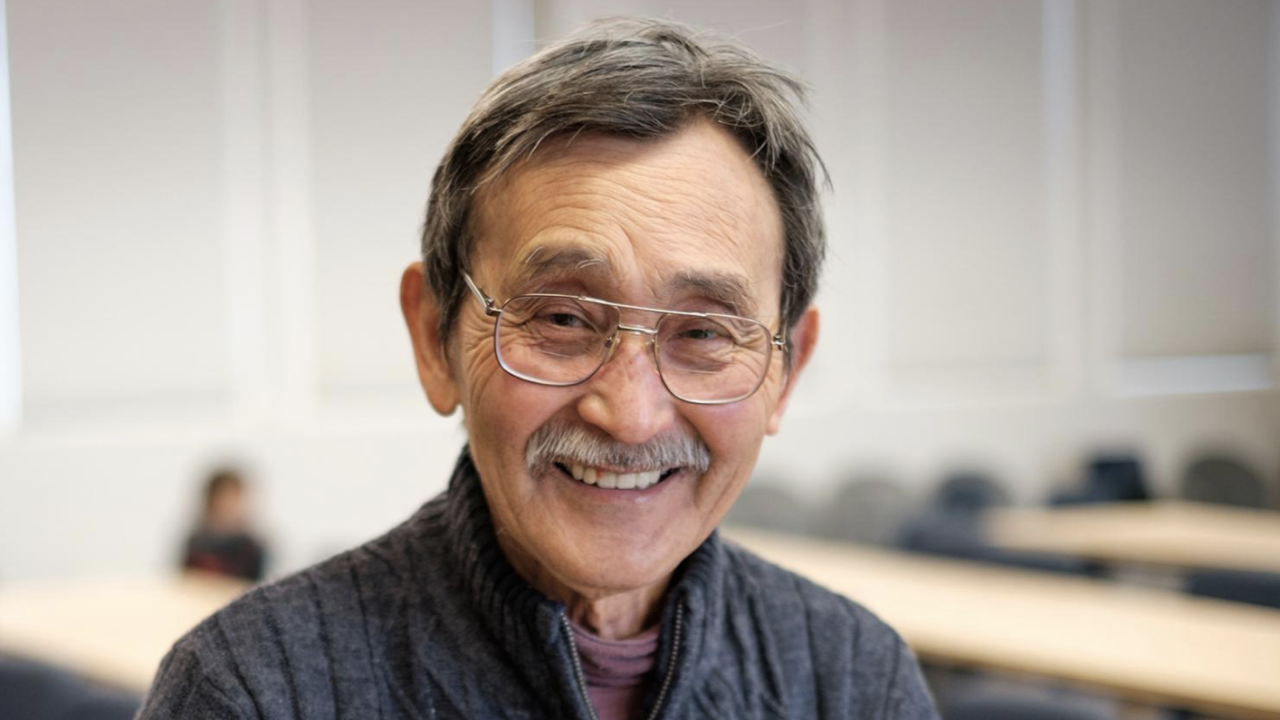
UC Davis Scholar and Activist Isao Fujimoto Dies at 88
Lecturer leaves legacy of connections, curiosity and collaboration
Isao Fujimoto, a beloved senior lecturer at University of California, Davis, known for his intense energy, curiosity and ability to bring people together across diverse communities, has died.
Fujimoto, 88, came to Davis in 1967 and helped found the Asian American Studies and Community Development programs through which he mentored generations of students and faculty.
Even after retiring in 1994, Fujimoto continued to teach dozens of courses, maintained a campus office and was quick to attend department events. He also was a project facilitator for the Central Valley Partnership for Citizenship, fostered a summer abroad program in Kyoto, Japan, and worked with community groups.
“That’s the nature of Isao: infinite energy, lifelong curiosity, creative synergies and expansive networking skills,” said Wendy Ho, a professor of Asian American studies who met him in the early 1990s when interviewing for a faculty position at UC Davis.
Time in Internment Camps
Fujimoto’s early life helped frame his future.
He was born in 1933 on the Yakama Indian Reservation in Washington state at a time when people of Asian descent could not become citizens or own land. During World War II, he and his family were imprisoned at two internment camps, including one at Tule Lake, California.
After the war ended, this child of strawberry farmers drew from his time on the reservation and the camps to guide his adult life. His fondness for the people who tried to help those in the camps prompted him to also provide service to others.
“It really shaped my outlook on what I am doing now,” he said in a 2003 interview with the American Folklife Center.
His work centered on the lived experiences of people in rural areas and their connection to the land, Ho said.
To Fujimoto, land was not symbolic. It was like family and the people who lived and worked in rural communities held deep knowledge. Recognizing that could empower communities, foster sustainability and connect people, she said.
“He made you feel like you were really important,” said Scott Tsuchitani, a Ph.D. candidate in cultural studies who worked on an exhibit called “Isao Fujimoto: Life and Legacy,” which showed at the International House in February 2020.
Tsuchitani drew on photos and special moments shared with Fujimoto, as well as the lecturer’s 2017 memoir, “Bouncing Back: Community, Resilience & Curiosity,” to create the display.
“I’m grateful that we were able to do that for him and that he was healthy enough to be able to attend,” Tsuchitani said.
The tribute was well earned. “Isao had an abiding love and care for Asian American Studies, its faculty, students, staff, and alumni,” Ho said. “He contributed generously to its development and well-being over a lifetime.”
Focus on Farmworkers
Fujimoto had appointments with what are now known as the College of Agricultural and Environmental Sciences and the College of Letters and Science. His work as a rural sociologist with a focus on farmworkers could put him at odds with agriculture and college leadership.
“He was a significant critic of agribusiness and its impact on small farms, communities and the workers,” said Jonathan London, a professor of human ecology who worked with Fujimoto over more than two decades. “He was a friendly, wonderful, gracious guy but also had a strong political point of view and was very courageous for expressing that.”
Ever the brainstormer over how to connect people, Fujimoto’s house became a sort of incubator for community groups like the Davis Farmers Market and Davis Food Co-Op, which still operate today.
Those groups grew out of a time of strife when Fujimoto chose to work from home rather than campus. His students began showing up to the house and Fujimoto’s work continued from there. The front yard was ripped up and replaced with an herb and vegetable garden focused on sustainable farming. A solarium, greenhouse and chickens – before chickens were popular – also appeared as part of his work.
“His house became a site of the practices that are now common but weren’t at the time,” Tsuchitani said. “Those things all have a genesis connected to Isao’s back porch.”
Legacy Remains Today
Many of the practices he started at the university are still in force today, including student requirements for internships, practical experience and skills as part of community development work, London said.
“He would really immerse students in the reality of those marginalized communities,” London said.
Credit for some of the conversations held today about farmworker well-being are likely because of Fujimoto’s early work, said London, adding: “Now it’s much more accepted, but it wasn’t at the time.”
Fujimoto had degrees from UC Berkeley and Stanford University but it wasn’t enough for him. While at UC Davis he obtained his Ph.D. in development sociology from Cornell University, which he earned in his 70s after 50 years of work.
“He decided he wanted that Ph.D. and he was going to get that Ph.D.,” Ho said. “It really has been a lifelong commitment on his part to the very end.”
A memorial service is planned for mid-April.
Media Resources
Emily C. Dooley, College of Agricultural and Environmental Sciences, ecdooley@ucdavis.edu, 530-650-6807.